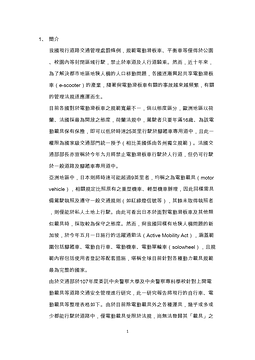#vtaiwan
2019-08-04
@null
14:06:21
本次小松報名:
歡迎直接編輯共筆~
https://vtaiwan.kktix.cc/events/e2815955
https://g0v.hackmd.io/Y1hJ_thtTmWMDAuTTiRNSA
歡迎直接編輯共筆~
https://vtaiwan.kktix.cc/events/e2815955
https://g0v.hackmd.io/Y1hJ_thtTmWMDAuTTiRNSA
- ❤️4
 4
4
2019-08-07
chewei 哲瑋
21:09:12
補充: 資料申請小幫手參加 2019 總統盃的簡報
https://www.facebook.com/pg/%E8%B3%87%E6%96%99%E7%94%B3%E8%AB%8B%E5%B0%8F%E5%B9%AB%E6%89%8B-2125769830846436/photos/
https://www.facebook.com/pg/%E8%B3%87%E6%96%99%E7%94%B3%E8%AB%8B%E5%B0%8F%E5%B9%AB%E6%89%8B-2125769830846436/photos/
facebook.com
資料申請小幫手. 267 likes · 159 talking about this. 【資料申請小幫手】我們正在開發一個網頁工具,串起民眾的申覆結果、應對建議,讓政策推動者導入行政資源。小幫手網頁工具預計今年底上線。 線上檔案夾 <https://beta.hackfoldr.org/opengovdata>
- ❤️4
2019-08-08
@null
14:21:27
本次小松報名:
歡迎直接編輯共筆~
https://vtaiwan.kktix.cc/events/73df219d
https://g0v.hackmd.io/r7425RQsQeaj2qnQJNJiXg
歡迎直接編輯共筆~
https://vtaiwan.kktix.cc/events/73df219d
https://g0v.hackmd.io/r7425RQsQeaj2qnQJNJiXg
allenlinli
2019-08-08 14:27:46
咦這個好像壞掉了
Scott
2019-08-08 14:32:53
我知道XD,剛剛在heroku上面弄,結果一直失敗,然後在本機端跑的時候開成Debug mode了。
不過現在修好了喔XD
不過現在修好了喔XD
Scott
2019-08-08 14:35:44
heroku上面的os是ubnutu, 所以chrome & chrome driver要換掉(晚點再研究了)
Scott
2019-08-10 19:03:50
默默改好程式碼讓vtaiwan教召可以在外面的server (heroku) 上面自動地被執行了。
希望之後每週三晚上小松結束後21:30可以自動產生新的共筆&活動。
希望之後每週三晚上小松結束後21:30可以自動產生新的共筆&活動。
allenlinli
14:27:46
咦這個好像壞掉了
Scott
14:32:53
我知道XD,剛剛在heroku上面弄,結果一直失敗,然後在本機端跑的時候開成Debug mode了。
不過現在修好了喔XD
不過現在修好了喔XD
2019-08-10
Scott
19:03:50
默默改好程式碼讓vtaiwan教召可以在外面的server (heroku) 上面自動地被執行了。
希望之後每週三晚上小松結束後21:30可以自動產生新的共筆&活動。
希望之後每週三晚上小松結束後21:30可以自動產生新的共筆&活動。
 4
4 3
3
2019-08-14
ky
20:41:49
<!channel>
有位 University College London 的研究生 Megan Ballesty 希望能夠收集不同時期的 vTaiwan 參與者對於 vTaiwan 的想法,歡迎有興趣的朋友填寫問卷 (期限 23rd August ):
(期限 23rd August ):
https://docs.google.com/forms/d/e/1FAIpQLScUuy5zkZ8s2C_JkkbvVUZ7m0g1fLBQx5iBT1BjVoU_JFNheA/viewform
FW from vTaiwan mail box:
My name is Megan Ballesty, I am a public policy scholar from University College London currently researching the impact of e-democratic tools, and specializing in the case study of vTaiwan.
Given that innovation and democracy are big topics, it took me quite some time to narrow down my questions to be able to finally write to you, apologies about that. Because of this, I am now working on tighter deadlines, so I’ve designed a multiple-choice questionnaire that should only take about 15 minutes to respond. Please feel free to look at the questionnaire and confirm to me if you would be willing to answer it according to your best knowledge and opinion. You can reply through this link or if you prefer, I can either send you the word version so you can complete it offline, or we can arrange a call to go through them at your earliest convenience.
Following a research good practice, my idea is to run these questions through someone who works in the project, also through someone that has done research on the project (so I am looking for a researcher as well), and finally through a user. The people replying will be kept anonymous and my article will not be published (this would require the written consent of the interviewees).
A little bit of background on my research on the vTaiwan case: after reading a lot of literature on digital participation, vTaiwan stroke me as one of the most impressive platforms available, so I picked it for my dissertation case study. There are obviously many factors that explain this success, particularly the service and design provided by g0v, but my research explores the role of two specific factors:
(A) The institutional background of Taiwan, and whether this provided an enabling role in the success of vTaiwan.
(B) The issue of representativeness, that is, the extent to which different social groups are represented, and if this is an issue to be addressed.
You will notice that the questionnaire addresses questions related to both factors. The questions may not be easy to reply objectively, but that is perfectly fine, I aim for the best knowledge of the interviewee.
有位 University College London 的研究生 Megan Ballesty 希望能夠收集不同時期的 vTaiwan 參與者對於 vTaiwan 的想法,歡迎有興趣的朋友填寫問卷
https://docs.google.com/forms/d/e/1FAIpQLScUuy5zkZ8s2C_JkkbvVUZ7m0g1fLBQx5iBT1BjVoU_JFNheA/viewform
FW from vTaiwan mail box:
My name is Megan Ballesty, I am a public policy scholar from University College London currently researching the impact of e-democratic tools, and specializing in the case study of vTaiwan.
Given that innovation and democracy are big topics, it took me quite some time to narrow down my questions to be able to finally write to you, apologies about that. Because of this, I am now working on tighter deadlines, so I’ve designed a multiple-choice questionnaire that should only take about 15 minutes to respond. Please feel free to look at the questionnaire and confirm to me if you would be willing to answer it according to your best knowledge and opinion. You can reply through this link or if you prefer, I can either send you the word version so you can complete it offline, or we can arrange a call to go through them at your earliest convenience.
Following a research good practice, my idea is to run these questions through someone who works in the project, also through someone that has done research on the project (so I am looking for a researcher as well), and finally through a user. The people replying will be kept anonymous and my article will not be published (this would require the written consent of the interviewees).
A little bit of background on my research on the vTaiwan case: after reading a lot of literature on digital participation, vTaiwan stroke me as one of the most impressive platforms available, so I picked it for my dissertation case study. There are obviously many factors that explain this success, particularly the service and design provided by g0v, but my research explores the role of two specific factors:
(A) The institutional background of Taiwan, and whether this provided an enabling role in the success of vTaiwan.
(B) The issue of representativeness, that is, the extent to which different social groups are represented, and if this is an issue to be addressed.
You will notice that the questionnaire addresses questions related to both factors. The questions may not be easy to reply objectively, but that is perfectly fine, I aim for the best knowledge of the interviewee.
- 👍5
2019-08-15
2019-08-17
isabelhou
17:08:12
要點菜囉。
2019-08-20
ael
12:01:20
我正在參加一個國際營隊,週三晚上想帶幾個國外公民社會的朋友過去。目前看起來沒有要開大會?
yitzu
2019-08-20 17:56:43
這周目前好像沒有 (?
yitzu
2019-08-20 22:28:47
班班要提案嗎? 還是只是要帶人來玩
沒有要提案,只想要帶人來玩
一些也是做 open data, open government 的亞洲朋友
什麼是開大會
就是有很重要的事要討論,沒時間跟心力和外國人解釋太多。
yitzu
17:56:43
這周目前好像沒有 (?
yitzu
22:28:47
班班要提案嗎? 還是只是要帶人來玩
2019-08-21
ael
09:02:54
一些也是做 open data, open government 的亞洲朋友
ky
10:58:33
什麼是開大會
ael
16:26:29
就是有很重要的事要討論,沒時間跟心力和外國人解釋太多。
csdannixxx
17:26:57
@superdannychang has joined the channel
Wade
19:02:49
請問今天小松的場地有換嗎?
allenlinli
19:24:01
今天有點事,改從遠端參加
2019-08-22
ky
01:03:42
直播到沒電😂
allenlinli
04:58:45
XD
ky
08:55:59
謝謝小班帶新朋友來
allenlinli
11:56:30
剛去家樂福消費,它直接幫我將發票存會員卡裡面,不印出來
中獎的話主動通知我耶
超帥
tag @felixtypingmonkey
中獎的話主動通知我耶
超帥
tag @felixtypingmonkey
yitzu
2019-08-22 14:46:41
恭喜中獎!
allenlinli
2019-08-22 14:54:39
中兩百萬我就辭職為 vTaiwan 寫程式工作一年
(下狂語來增加中獎機率
(下狂語來增加中獎機率
發大財發大財
yitzu
14:46:41
恭喜中獎!
ky
14:55:13
發大財發大財
2019-08-28
ky
19:19:06

ael
19:50:41
g0v-jothon.kktix.cc
歡迎公民、鄉民、憤青、開發者、設計者、社會運動工作者、公務員、法律專家、文字工作者、插畫家與媒體工作者等諸眾,帶著熱血來盡一己之力,開源協作參與社會。
- 👍1
 1
1
ronnywang
20:27:09
國立台灣大學腳踏車管理與處理辦法(草案)
ronnywang
21:13:34
allenlinli
23:26:26
剛結束了跟在美西的 Wen 的電話,他在推「多粉對談」,我覺得蠻有趣的
http://taiwan2020.org/index.html#updates
之前好像有看過國外類似的影片,蠻感人的,可是我忘記怎麼搜尋到了,仔魚還是誰記得的話可以支援一下嗎?我想傳給他看
他有提到這個國外類似的專案
Hi From The Other Side
https://www.hifromtheotherside.com/
然後我在想下次 vTaiwan 聚會大家有興趣的話,說不定可以在十點跟他線上通話認識一下,給他的專案一點 feedback,說不定也可以讓他跟 Kevin 牽線認識(都是在美西),讓 g0v 在美西的分佈壯大一點 XD。
http://taiwan2020.org/index.html#updates
之前好像有看過國外類似的影片,蠻感人的,可是我忘記怎麼搜尋到了,仔魚還是誰記得的話可以支援一下嗎?我想傳給他看
他有提到這個國外類似的專案
Hi From The Other Side
https://www.hifromtheotherside.com/
然後我在想下次 vTaiwan 聚會大家有興趣的話,說不定可以在十點跟他線上通話認識一下,給他的專案一點 feedback,說不定也可以讓他跟 Kevin 牽線認識(都是在美西),讓 g0v 在美西的分佈壯大一點 XD。
 3
3
2019-08-30
Awan / 阿旺
10:00:32
@kindalu has joined the channel
tmonk
11:18:08
這個月在台灣大車隊打工, tonyq 說離開前可以幫自己客製幾個點位到目前的 APP 的圖資系統,所以現在搜尋「社會創新實驗中心」就可以直接選到點位了 

 7
7 11
11
allenlinli
2019-08-30 12:08:40
~許願新增 vTaiwan~ XDD
allenlinli
12:08:40
~許願新增 vTaiwan~ XDD